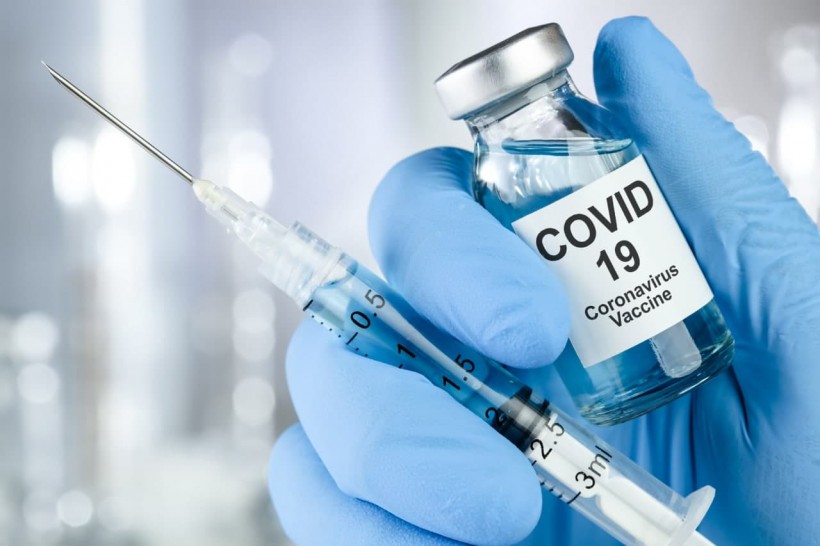
Since time immemorial, pharmaceutical companies have always been finding ways to develop new medication formulations to prevent and combat diseases. And with the strike of the coronavirus 2019, the pharmaceutical industry seems to be facing greater challenges. However, the pandemic is also believed to bring a silver lining to the industry in terms of business aspects.
As a lot of expectations are being thrown today at the pharmaceutical industry because of the pandemic, it may be well to ask how the pharmaceutical industry is responding to COVID-19. You'll learn more about that below.
1. Embracing State-Of-The-Art Technology
Pharmaceutical companies needed to leverage the emerging needs of medical professionals and patients. As such, the world sees scientists trying to incorporate safety features using state-of-the-art technology, such as ready-to-administer pharmaceutical solutions from fagronsterile.com and other similar sites.
Outsourcing solutions appears to be gaining popularity, and the pharmaceutical industry seems to come prepared in promoting state-of-the-art cleanroom hospital environments. As with medications, companies are said to offer unit-of-use alternatives with full compliance with stringent Current Good Manufacturing Practice (CGMP) guidelines.
2. Implementing Extensive Clinical Trials
Clinical trials are ongoing, seemingly running 24/7 in various parts of the world. According to a trusted source, there were 366,000 clinical studies globally registered as of February 1, 2021, which increased significantly from just 2,119 in 2000. This number is reported to include clinical trials for COVID-19 vaccines.
While pharmaceutical companies are already used to implementing clinical trials, the scope of COVID-19 vaccine clinical trials is said to be more extensive. Aside from the vaccine, other medication options are also being studied, such as oral drugs to fight the virus.
In recent news, one giant pharmaceutical company has been reported to have already started early-stage human clinical trials of a newly discovered oral drug, to be administered to patients showing COVID-19 symptoms.
Clinical trials have different stages with specific goals and number of participants involved. The different phases of clinical trials include the following:
- Phase 1: This first stage of clinical trial helps researchers understand the safety of a drug, such as COVID-19 vaccines. This stage involves testing 20 to 100 participants who undergo laboratory works and monitoring of the side effects and adverse effects in first human trial.
- Phase 2: This clinical trial phase involves hundreds of participants who aim to help researchers determine the effective drug dosages, including the risk factors and side effects.
- Phase 3: This phase of the clinical trial involves monitoring hundreds to thousands of participants from different countries worldwide, which runs from one to five years.
- Phase 4: The last phase may last for over a year. It involves conducting long-term clinical studies to determine potential benefits and risks.

3. Teaching Businesses How To Recover From The Crisis
One of the top industries said to have tremendously high revenues, amid the declining business revenues and struggling economies, is the pharmaceutical industry. There reportedly came a time when alcohol, medical supplies, vitamin C supplements, and other immune-system-boosting drugs became out of stock in drug stores and pharmacies. The demand for pharmaceutical products increased, and so did investors.
The pharmaceutical industry is said to be teaching business leaders how they can recover from crisis situations. About 32% or only one-third of Americans had a good impression of the pharmaceutical industry before the strike of COVID-19. However, these data doubled to 62% after vaccines had raised high hopes to end the pandemic.
It would be best if businesses could prioritize consumers before profits to avoid compromising product and service quality. For instance, it would be impossible to come up with effective and safe COVID-19 vaccines if pharmaceutical companies had failed to consider the needs of patients or public health. This logic also applies to business management.
4. Working Round The Clock
The fight against the pandemic takes a global effort, so scientists and researchers worldwide are said to be doing everything in their knowledge and skills to find the right vaccine components to end this health crisis. While the COVID virus is mutating, the pharmaceutical industry appears to work double time. There are over 100 COVID-19 vaccine candidates in development and more than 600 clinical trials underway worldwide.
The pharmaceutical industry is working in an attempt to:
- Speed up compliance with government requirements, such as obtaining authorizations
- Reduce the number of active COVID-19 cases and death rates
- Slow down the transmission of COVID-19 in high-risk areas to a manageable level
- Produce many effective COVID-19 vaccines possible to meet global demands
- Immediately determine risks factors and avoid side effects and adverse effects
Conclusion
The pharmaceutical industry has apparently become busier with the strike of COVID-19, with many companies running series of testing, searching for ways to find a cure for the pandemic. Pressure from the private and government sectors is said to add to the challenge that the industry faces. Despite all these, pharmaceutical companies seem to remain steadfast, aligning their technology and processes with the emerging needs of today's society, geared toward ending the spread and existence of COVID-19.
* This is a contributed article and this content does not necessarily represent the views of hngn.com








